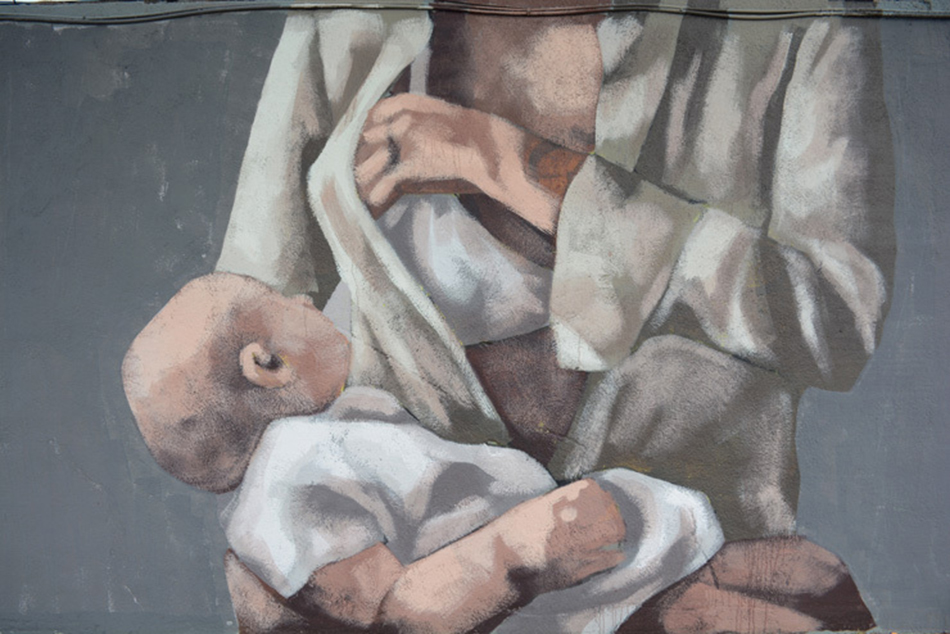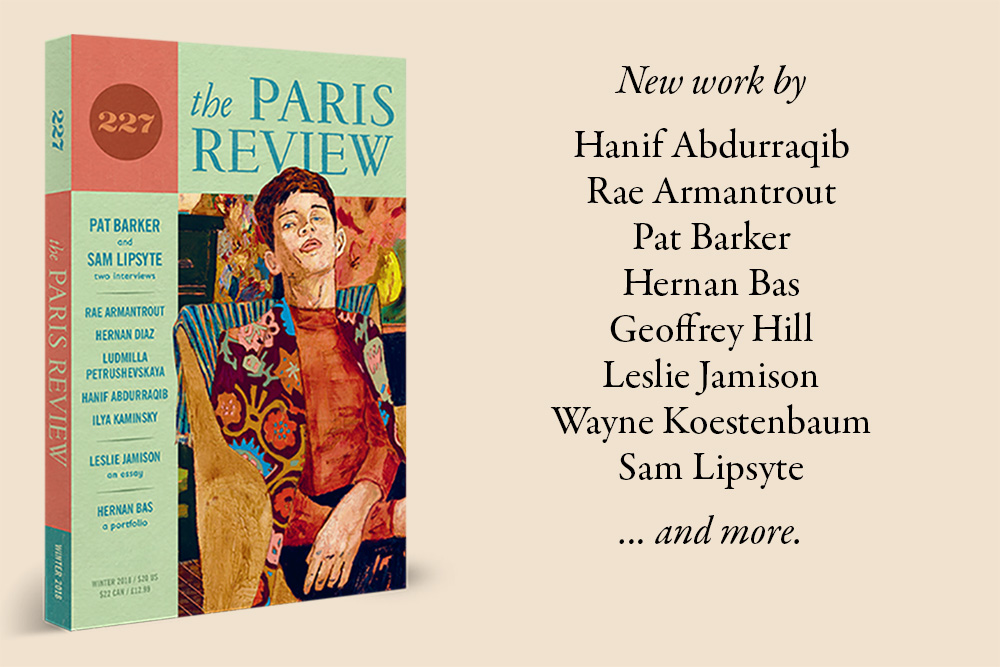This year I read mostly while nursing. My daughter was born in January, and those short winter days gave way to long nights spent with her sleeping against my chest—a tiny burrito in zip-up pajamas, her rhythmic breath against my neck—or waking up to eat, nearly falling asleep in that primal bliss, with the radiator hissing and clanking behind us, my finger stroking her cheek to wake her up again. I read so much about motherhood. Or maybe it was that everything I read seemed to be about motherhood. Grad school had taught me new ways to read, through various theoretical lenses, and so did my daughter. She taught me how to read with one arm, in stolen chunks of time, in half-delirium, in the long hormonal soup of the fourth trimester.
I read Meaghan O’Connell’s And Now We Have Everything, a collection of gloriously unsettled essays about imagining giving birth and then actually giving birth and then circling the tiny creature, lying in his Pack ’n Play, at first desperate for him to sleep and then desperately afraid he has died. I read the brilliant and unforgettable stories in Octavia Butler’s Bloodchild and Other Stories, including the one about a man carrying an alien baby, which is also about what it means to feel both violated by the life you made possible and beholden to it. I reread Meghan O’Rourke’s Sun in Days, whose poems wonder at—among other things—the shift from conjuring an imagined child to caring for an actual one, a baby built not from longing but from grapefruit and Rice Chex: “you were already you, not / an outgrowth of my mind.”
One evening I strapped my baby to my chest with the impossibly complicated stretchy fabric wrap and walked to a bookstore to listen to Terese Marie Mailhot read from her eloquent and seething memoir, Heart Berries. Swollen with hormones, I nearly started crying as she read about remembering her son’s milky breath years after losing custody; then my daughter started crying, not because she imagined another woman remembering milk but because she wanted milk herself. It felt good to nurse her, but it didn’t solve the pain in Mailhot’s precise, exquisite book, nor was it meant to.
It seemed impossible to read about loving children without reading about loss, but maybe there was something in me that sought out that loss. I read Emily Rapp’s insistently celebratory essays in Still Point of the Turning World, which are not so much about losing her young child to illness but about caring for him through it, living alongside him with such acuity and close attention. I read George Saunders’s Lincoln in the Bardo, which was honest about the absurdity of death, how it brings us into helpless, ridiculous postures of yearning: a big gangly Abe Lincoln aching for his son among the almost-dead. I read Yiyun Li’s astonishing novel Where Reasons End, an imagined conversation between a mother and her teenage son who has recently committed suicide. In this mother’s imagining of her son’s caustic, precocious voice—in the deft conjuring of its sharpness—we feel the ferocity of her desire to argue with him again, to feel his consciousness still pushing back against her own. When she tells him, “I will be sad forever,” he says, “I thought you said you took forever out of your dictionary.” She replies, “You put it back for me.”
I read Jake Rubin’s wise and moving and restless essay about reading in the aftermath of a close friend’s death; how even the language of grief didn’t feel quite right. “Humans had dreamed up a thing called ‘permanence,’ a word with no actual referent,” he wrote, “and then gnashed their teeth and wept and accused the universe of being ‘senseless’ because it didn’t abide by this wishful conceit.”
Through summer and fall, I took long walks with my daughter as she kicked with delight at the sight of dogs peeing on trees, and covered the canvas flaps of her baby carrier with dark, spreading patches of drool. I listened to books that reminded me being a mother meant not one thing but billions of things. The babies in Octavia Butler’s Kindred played with their feet by the fire but that didn’t make the horror of American slavery disappear. Lacy M. Johnson’s gorgeously painful memoir The Other Side charted the long shadow of trauma across parenthood—how violence reached into those moments, a decade later, when she pulled away from her children or gave them food when they asked for love. Heather Havrilesky’s How Should a Person Be? kept me company on so many dusk walks—past the dog beach and the RACCOON DISTEMPER WARNING signs and finally past a sick raccoon, listless in the late saturated daylight. Listening to a book rather than reading it created a small pocket of privacy where my daughter could not join me, though she was tightly pressed against my chest, because she could not hear what I was hearing; she didn’t fully live inside the world I was living in, which was full of the pleading questions Havrilesky was fielding from strangers: How do I survive being single? Being married? In response, Havrilesky’s mind created these funny, staggering, no-bullshit sculptures of insight: she would tell them to keep showing up, to stop expecting life to play out according to the scripts they’d written, to be honest with themselves and the folks they were trying to love.
Just last month, I read Carley Moore’s marvelous 16 Pills, a collection of essays about being a mom, a teacher, an activist, and a person who likes to dance, and also a divorced coparent full of lust and hope and exhaustion, picking nits from her daughter’s hair with her ex. And as my daughter nursed, just beyond the pages of the book, she would pull back sometimes to reach for the pages when she heard them rustling. She wanted to crinkle them with her tiny fingers. Just nine months earlier she had been too utterly absorbed to notice. Life then had been nothing but milk. Now it was milk and turning pages, milk and crumbs on the floor, milk and stuffed moose paws and ambulance sirens and soft-boiled zucchini. It was some version of this simultaneity that these books had been teaching all along. Motherhood was care and it was greed. It was bliss and it was loss, gradual or sudden. The world felt small around you and your baby, but it was always actually very large and very broken: breastfeeding babies being taken from their mothers at the border, kids dying for no good reason because permanence was just a word we invented so we could rage against its broken promises, because forever was just a word we took out of the dictionary until the end of youth returned it.
Read Leslie Jamison’s essay about her own mother, “I Met Fear on the Hill,” in our current issue.
Leslie Jamison is the author of the essay collection The Empathy Exams, a New York Times bestseller, the novel The Gin Closet, and, most recently, The Recovering. She is a contributing writer for the New York Times Magazine, and her work has appeared in publications including The Atlantic, Harper’s, the New York Times Book Review, the Oxford American, and the Virginia Quarterly Review.
from The Paris Review https://ift.tt/2UHO3AP


Comments
Post a Comment